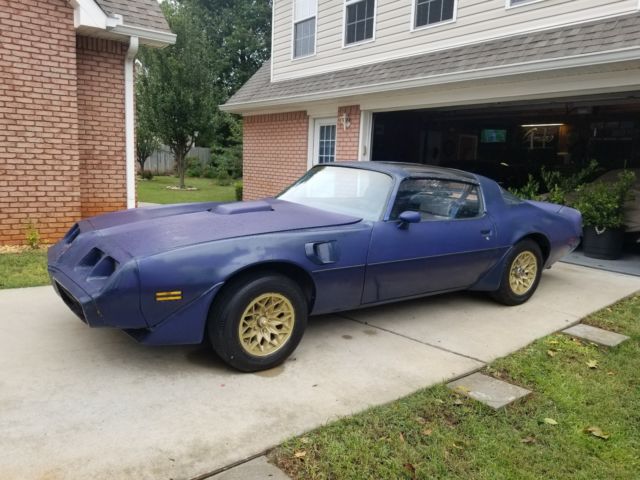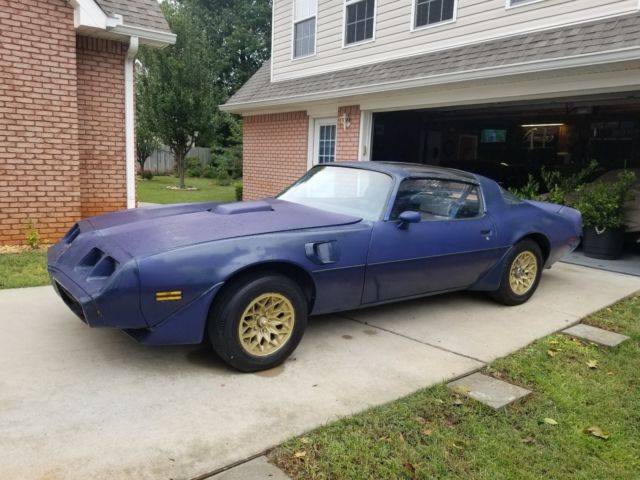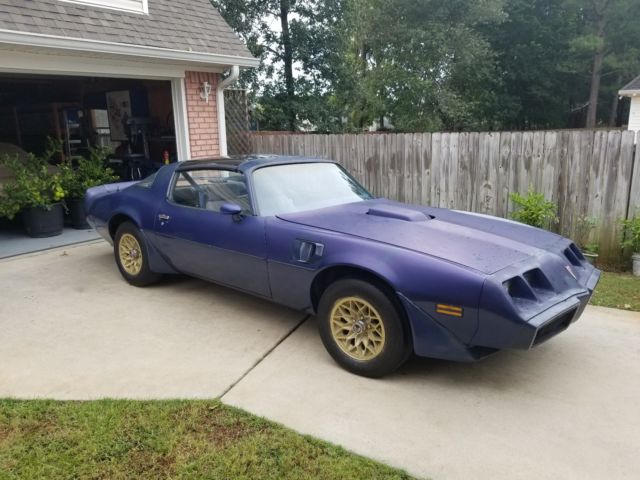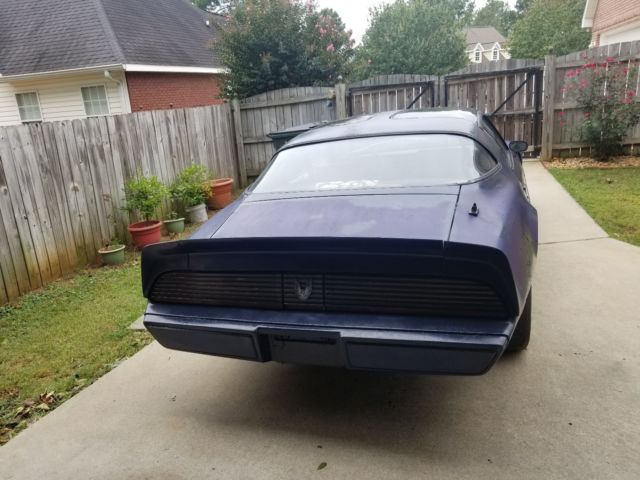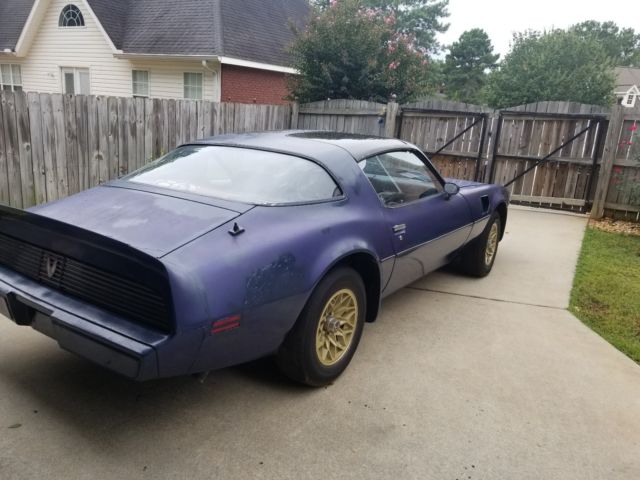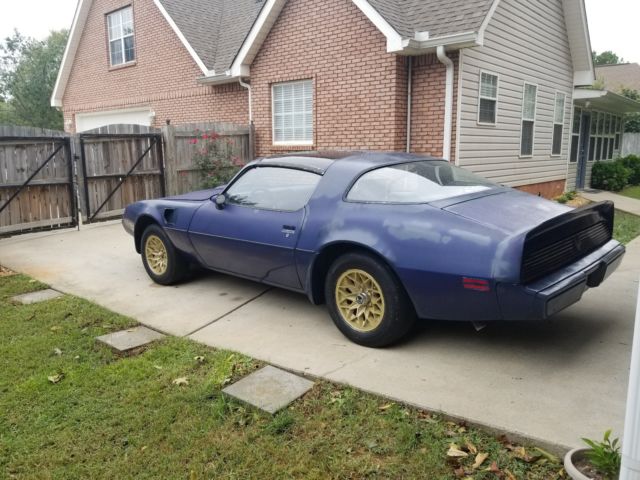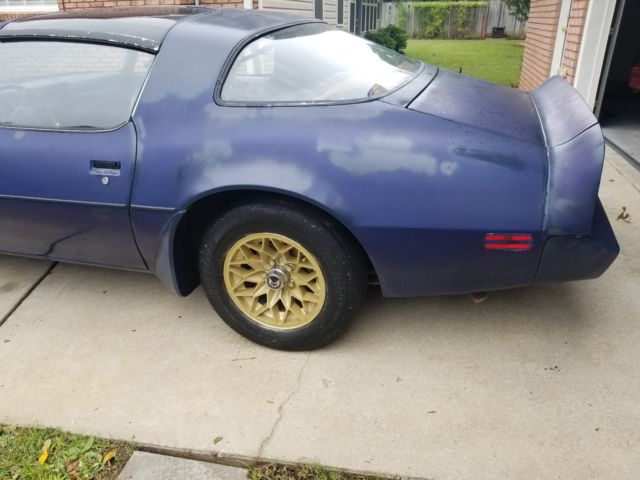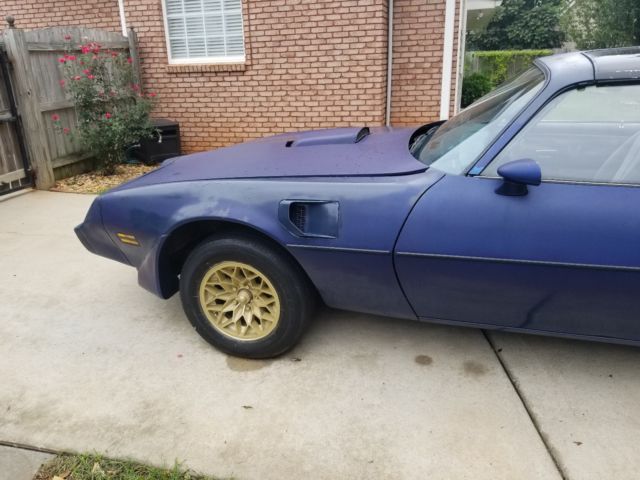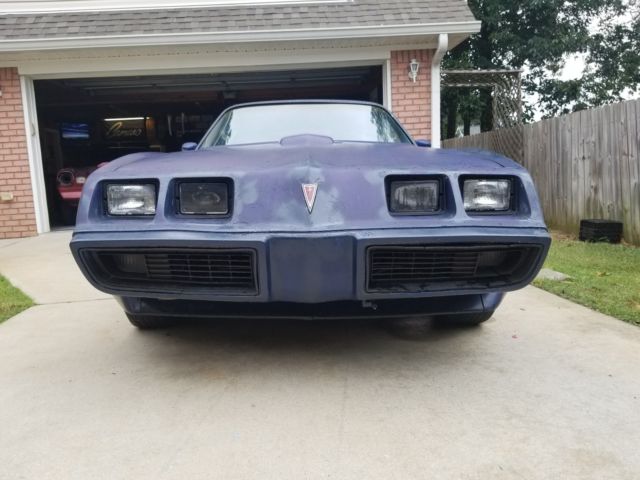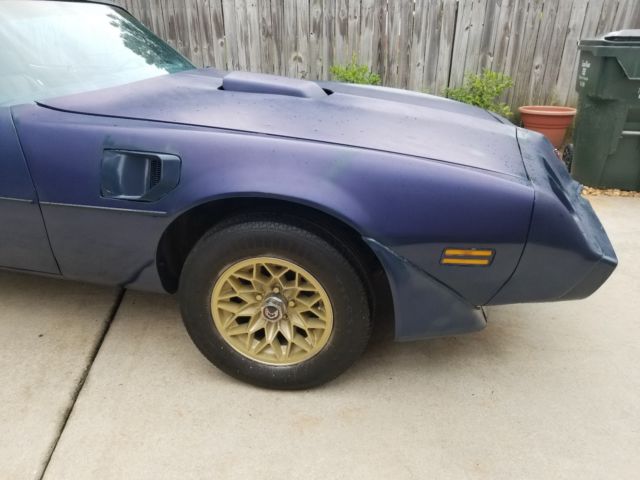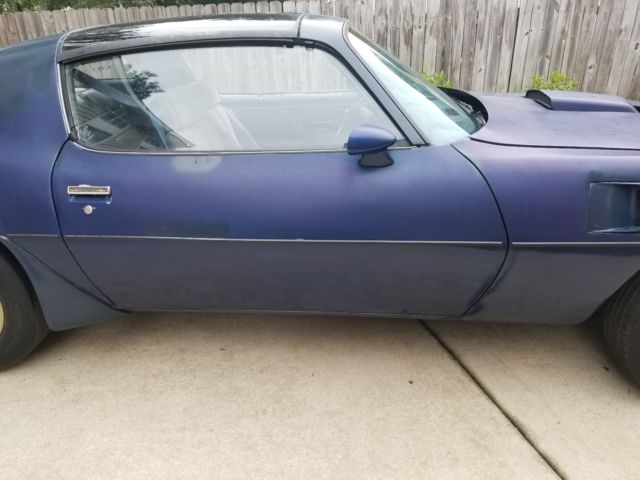1981 Trans Am - T Top Solid Body Good Frame Rails Nice Interior Clear Title
- Make: Pontiac
- Model: Trans Am
- Year: 1981
- Mileage: 180,397
- VIN: 1g2aw87w6bn103073
- Number of cylinders: 8
- Power options: Air Conditioning
- Vehicle Title: Clear
- Interested?
1981 Pontiac Trans Am Description
--Car was relisted due to a non paying buyer--This auction is for a COMPLETE 1981 Trans Am 4.9 Liter (non-turbo) engine, original POSI 3.08 rear endT Top Car in great driver condition (NOT RUNNING). Car comes with Build Sheet and clear Alabama Title.
BODY:
The body has some very minor mostly surface rust but nothing bad at all as you can see in the pictures. Both fenders are good, drivers and passenger door are good, rear quarters are in excellent condition. T-tops are in great shape and do not leak. Front and rear clips are in great shape. Rear frame rails are good, trunk and floor pans are also in very good shape. Car needs a total restoration but its a VERY SOLID start to a great 81 TA.
Did I mention the rear frame rails are VERY NICE?
TRUNK
Trunk is in great shape with minor surface rust.
INTERIOR
Comes with a NICE driver quality blue interior. I did not see anything missing and its all original with the exception of the seats which were out of a 82-92 Camaro or Firebird, they are in nice shape but not original to the car. Gauges all worked when it was parked in 1996. All interior pieces are driver quality. Carpet is OK but faded and old.
DRIVETRAIN
This car was parked in 1996 when the 301 engine developed a knock. The top end was rebuilt and the engine ran fine for a short period and the knock came back. A mechanic looked at the engine and determined it has a spun bearing. This is the original engine with 180,000 miles. Car will also need a battery and the starter is very weak. If I were to keep the car I would find a cheap running Pontiac 400 and put it in the car for under $500. (SEE NOTE AT BOTTOM)
Original tranny in great shape and shifted fine when parked. The Rochester carb was rebuilt in 1996.
The car is sold as is where is and a $500 NON-REFUNDABLE deposit is required at the end of the auction via PAYPAL with the balance to be paid within 7 days either via Bank check (car wont ship until it clears) or cash when picking up the car. The car can stay at my house in my nice cozy shop free of charge for 2 weeks but after that if its still here it will be parked outside until picked up. Buyer is responsible for all shipping arrangements and payments for shipping.
This car would be a great daily driver for someone who can do the engine work or have the work done and drive the car. This car in running condition is worth $6000 to $8000 easily so my opening bid is a steal and the BUY IT NOW is still a great price. If you really want the car, I would use the BUY IT NOW as I have a feeling the car will sell for much more once more people see it and once the folks in Florida all get back home.
This car is a great deal at my opening bid and worth every penny of the BUY IT NOW. Good luck on your bidding. Please ask any questions you may have before you bid. Comes with a clear Alabama title.
NO FOREIGN BIDDERS AS THERE ARE TOO MANY SCAMMERS OUT THERE.
This was the info I received when I bought the car:
Glenn,
Car had about 140,000 miles in 1993 when I was still driving it daily to work. I bought a truck and decided to park the Trans Am to repair the rear main oil seal and put headers and dual exhaust on it to make it more fun. Since I had it in the garage, that began my work in the motor inspecting the top end (I kept fouling one plug) and found a collapsed hydraulic lifter and worn down cam lobe. You will find receipts for work done by Reeves Performance (heads and carb rebuild) and engine parts ordered. I did the camshaft and bearings, piston rings, crank bearings. Of course Reeves did a full rebuild on the heads (springs, seals and valves) and I put new rockers, lifters and pushrods in. Water pump, oil pump, alternator, fuel pump, radiator, and all associated belts and hoses were replaced. I couldn't repair air conditioning myself and wasn't going to pay to fix it since I drove it mostly windows down and often topless. Also at some point the front suspension rod ends and ball joints were replaced (see receipt). Also pulled stock engine driven fan and installed electric fan.
I pulled seats and replaced the carpet, laying down sound and heat insulating mats under the carpet. There were no rust holes in the floor and any surface rust was cleaned and painted. By the way the car came new with some kind of undercoating nose to tail and anti-rust treatment. I'm sure the dealer did that to make more money but it also made this a survivor car!
Car drove well until 2003 at 180,000 miles when I heard a loud knocking. I was 3 miles from home so I drove it and parked it. I did a compression test and it was good. No oil leaks or even smoke from exhaust. It sat due to many priorities and I never did anything more than put oil in cylinders and button it up. You said something about distributer could be 180 out. My money says it's a wore out bearing on the crank pushrod or a broken rocker arm or lifter. Trust me, everything was running smooth and powerful up until the knocking developed. That was at least 40K miles of pure joy!
Things I've learned over the life of the car:
Stock tires are 225/70 R15 (kids who think they are experts will argue forever that those cars did not have 15 inch wheels). The tires on it now were put on just to move the car around. They are not correct size.
I've run 235/60 and 245/60 and at one point had 255/60 r15 and they looked the best and still cleared the fenderwells.
The GM ignition module in the distributor is known to go bad from heat. I've replaced it 5 times over the life of the car. When they start going bad, the engine misses and you get a check engine light. When they fail, the engine cranks over but will not start. About a $20 part and worth having a spare on hand. Pull distributor cap and two screws replace the module. Using the heat sink bonding paste is critical on that module.
In the trunk is new t-top weatherstripping (expensive), the centercaps for the wheels, 2 oil filters, and a new grill insert. I swear I had two but can't figure out where the other is so I think I must have put one on the car already. I also gave you my collection of OEM and aftermarket service manuals.
Where I would start:
New battery and have starter rebuilt (franklin battery does great work) and the rebuilt starter will be guaranteed to fit with existing shims. Larger aftermarket high torque starters won't clear the headers. Also needs an insulation blanket wrap on the starter to protect it from header heat. The last few years I drove it, the car would turn over slow after it got warm from heat soaking next to the headers. I probably killed the starter. If it's not the starter, it may be the heavy cables from battery to starter.
The fuel line is disconnected from the fuel pump on the front of the motor (near the power steering pump) because I drained old gas out of the tank 6 months ago.
I didn't want to pump old gas into the carb when turning the motor over.
Once the engine is turning over, a mechanic may be better able to diagnose the knock.
Good luck and I'd love to see it when you're done!
-Mike
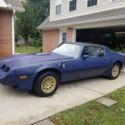 1981 Trans Am - T Top Solid Body Good Frame Rails Nice Interior Good Driver
1981 Trans Am - T Top Solid Body Good Frame Rails Nice Interior Good Driver
Mileage: 80,397
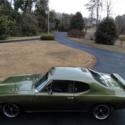 1968 PONTIAC.....SOLID BODY WITH NICE PAINT AND GOOD INTERIOR
1968 PONTIAC.....SOLID BODY WITH NICE PAINT AND GOOD INTERIOR
Mileage: 100,148
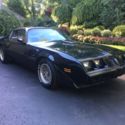 1981 Pontiac Trans Am 6.6 400 Mint Interior Everyday Driver SOLID CAR WOW !!
1981 Pontiac Trans Am 6.6 400 Mint Interior Everyday Driver SOLID CAR WOW !!
Mileage: 119,471
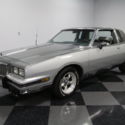 NICE CLEAN, 3.8L, AUTO, LOADED, GOOD PAINT, NICE INTERIOR, GOOD DRIVING, SHARP!!
NICE CLEAN, 3.8L, AUTO, LOADED, GOOD PAINT, NICE INTERIOR, GOOD DRIVING, SHARP!!
Mileage: 89,273
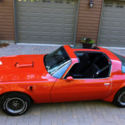 1981 Pontiac Firebird Trans Am, Frame Off Rebuilt & Restored, 403 cu"
1981 Pontiac Firebird Trans Am, Frame Off Rebuilt & Restored, 403 cu"
Mileage: 67,320
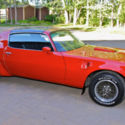 1981 Pontiac Firebird Trans Am, T-Tops, Frame Off Rebuild & Restoration, 403 cu"
1981 Pontiac Firebird Trans Am, T-Tops, Frame Off Rebuild & Restoration, 403 cu"
Mileage: 67,320
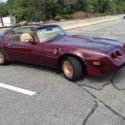 1981 PONTIAC TURBO TRANS AM !! FRAME OFF FULLY RESTORED!! GREAT CAR!!
1981 PONTIAC TURBO TRANS AM !! FRAME OFF FULLY RESTORED!! GREAT CAR!!
Mileage: 81,500
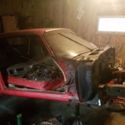 trans am in pieces solid body
trans am in pieces solid body
Mileage: 100,000
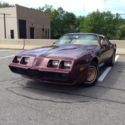 1981 PONTIAC FIREBIRD TRANS AM 4.9L TURBO FRAME OFF FULLY RESTORED 81K MILES
1981 PONTIAC FIREBIRD TRANS AM 4.9L TURBO FRAME OFF FULLY RESTORED 81K MILES
Mileage: 81,500
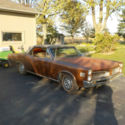 1966 pontiac lemans convertible project nw ohio solid body bad frame GTO clone
1966 pontiac lemans convertible project nw ohio solid body bad frame GTO clone
Mileage: 99,999
